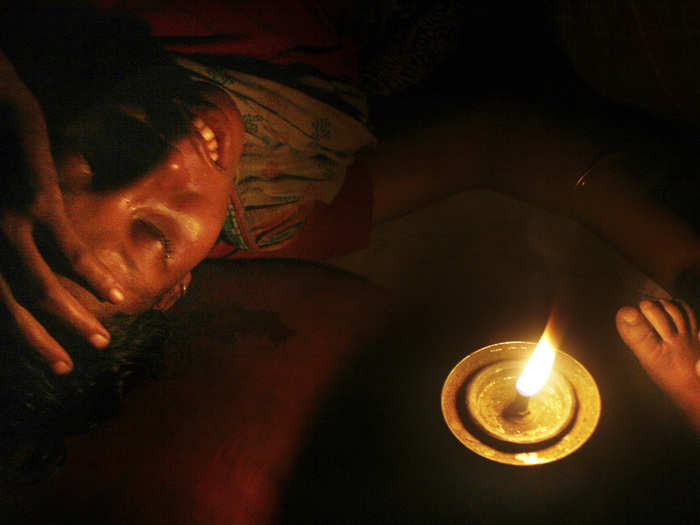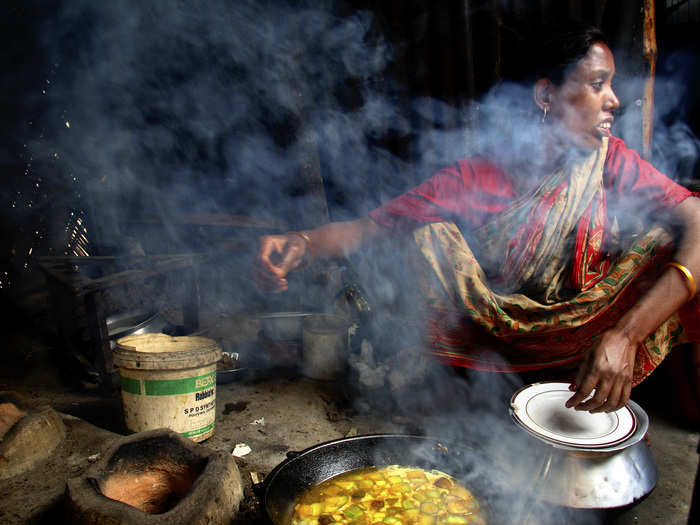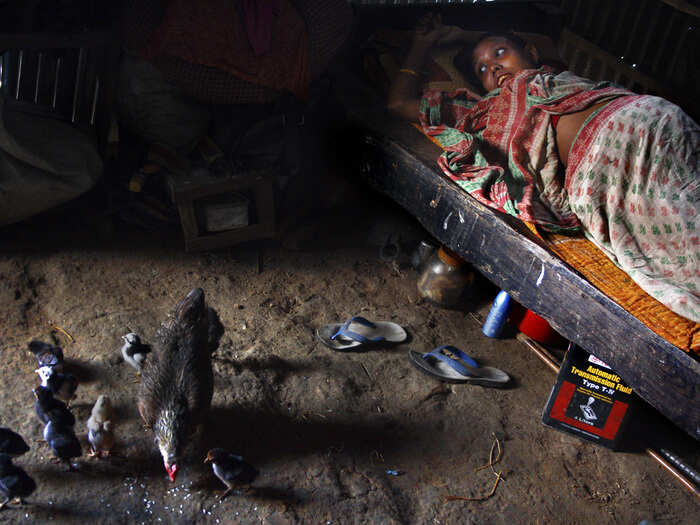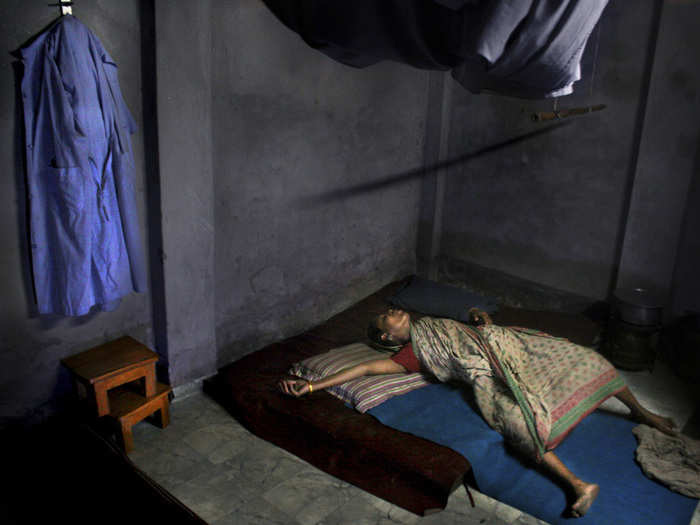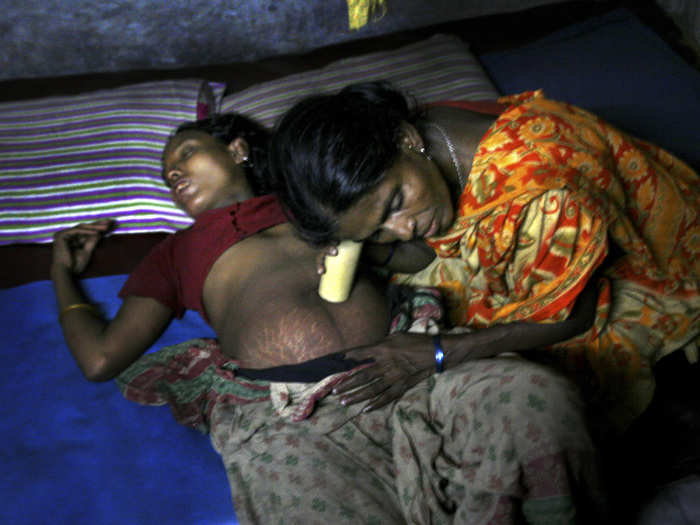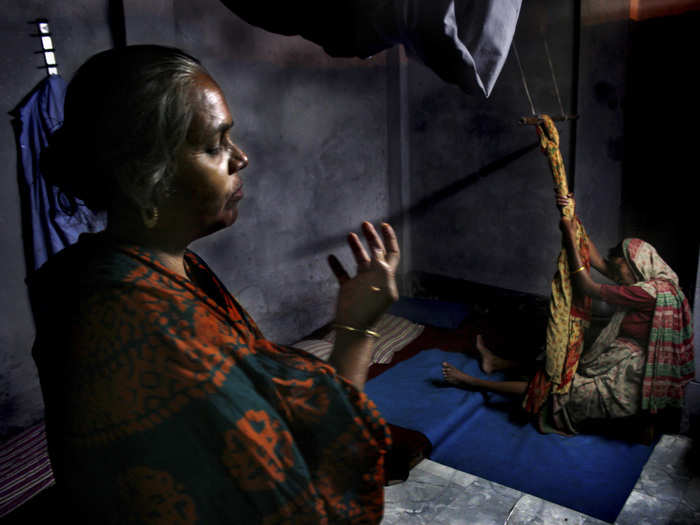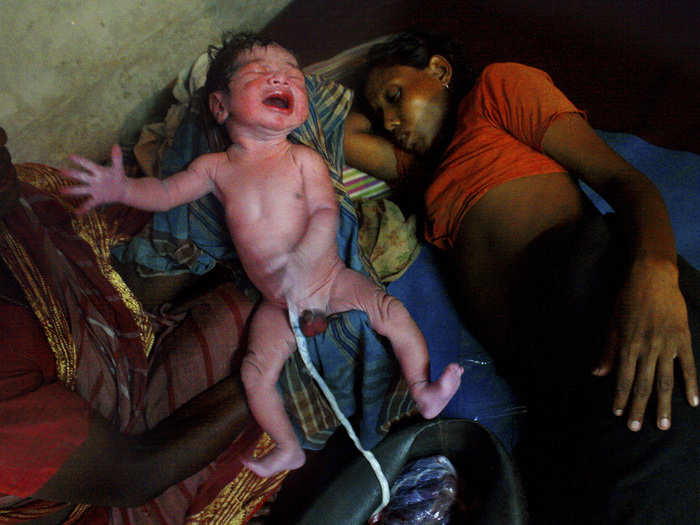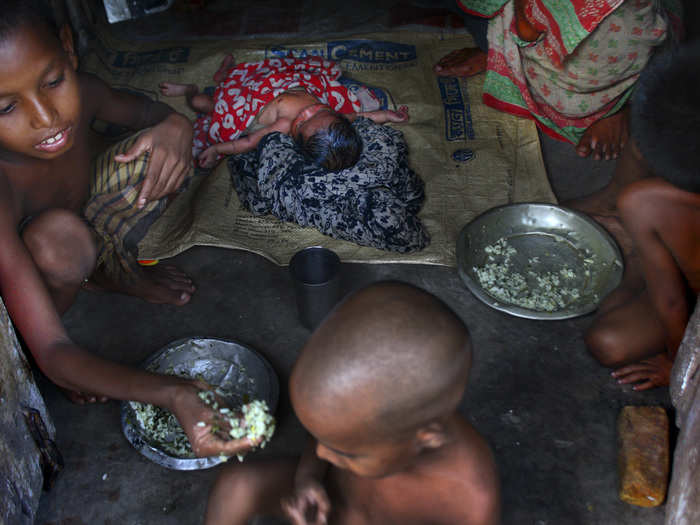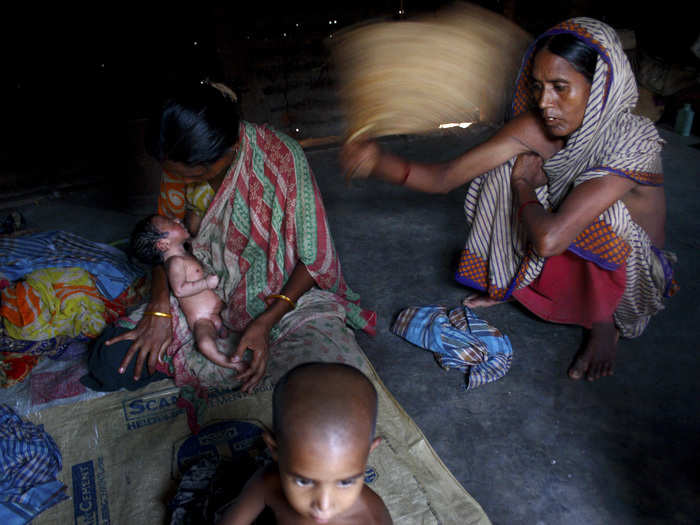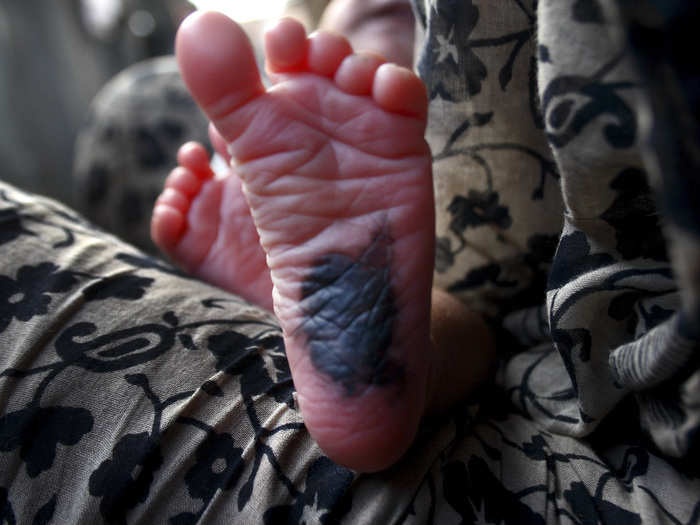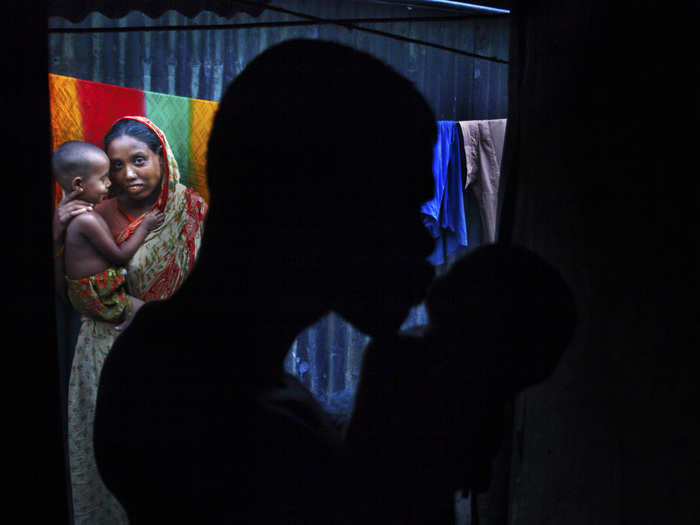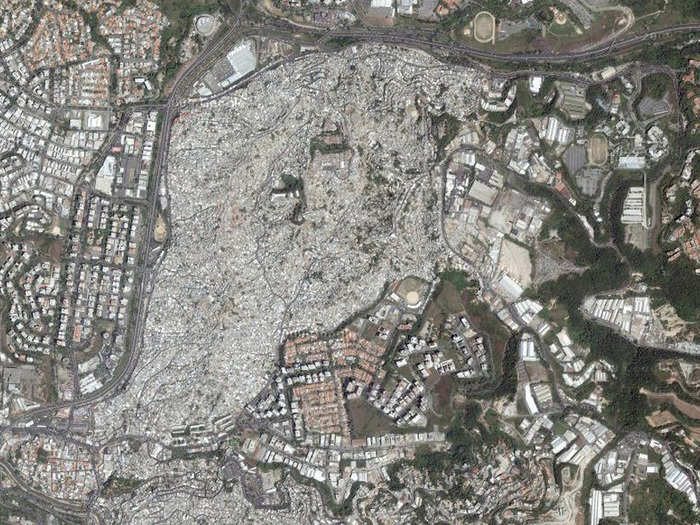Sajila comforts her son while she tolerates terrible pain herself.
Even during her pregnancy, Sajila worked as a day laborer because her family will starve if she does not.
Sajila takes a short rest. She lives in a small, suffocating, and unhealthy room in the Korail slum, which is surrounded by a lake. Like in most slums, there are no doctors or medical services available.
Sajila is in pain from labor. There are midwives to help the pregnant mothers in the slum, but most women do not trust them.
The midwife is trying to hear the heartbeat of the child with a plastic pipe. Bangladesh has a very high maternal mortality rate of 240 deaths per 100,000 live births. The reason behind this high death rate is that most of the births are delivered by untrained midwives.
The process of childbirth is being carried out in the traditional way, with a midwife. Sajila believes, if she has God by her side, she will give birth safely. All three of her children have been born this way.
A new life is born. The midwife holds up the boy as Sajila lays beside. Her economic condition was even worse during her pregnancy and she had to starve for several days. She gave birth to her child without any modern facilities or medicines, and in an unhealthy atmosphere. It might sound incredible to many, but Sajila walked home with her son only an hour after giving birth.
No special arrangement is made for the newborn. He lays on the floor while Sajila's three other children have their meal.
Sajila breast-feeds the baby boy in her unsanitary and suffocating room.
The boy has a black mark put on his foot to ward off evil spirits.
Even in the backdrop of grim poverty, the father welcomes the newborn with a kiss.

